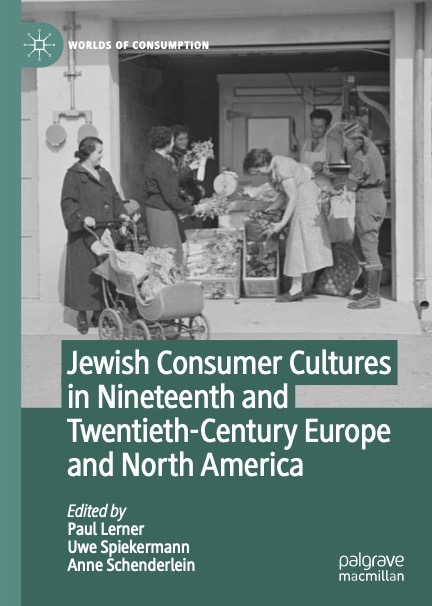Paul Lerner, Uwe Spiekermann, and Anne Schenderlein have a new edited volume titled Jewish Consumer Cultures in Nineteenth and Twentieth-Century Europe and North America (Palgrave, 2022). Part of the Worlds of Consumption series, it also speaks to the themes covered in this blog, not least due to its transnational framing.
This book investigates the place and meaning of consumption in Jewish lives and the roles Jews played in different consumer cultures in modern Europe and North America. Drawing on innovative, original research into this new and challenging field, the volume brings Jewish studies and the history and theory of consumer culture into dialogue with each other. Its chapters explore Jewish businesspeople's development of niche commercial practices in several transnational contexts; the imagining, marketing, and realization of a Jewish national homeland in Palestine through consumer goods and strategies; associations between Jews, luxury, and gender in multiple contexts; and the political dimensions of consumer choice. Together the essays in this volume show how the study of consumption enriches our understanding of modern Jewish history and how a focus on consumer goods and practices illuminates the study of Jewish religious observance, ethnic identities, gender formations, and immigrant trajectories across the globe.
Anne Schenderlein, by the way, has a book that relates to migration and migrant knowledge: Germany On Their Minds: German Jewish Refugees in the United States and Their Relationships with Germany, 1938–1988 (Berghahn, 2020), which is open access. And Uwe Spiekermann was part of a larger project titled Immigrant Entrepreneurship: German-American Business Biographies, 1720 to the Present (GHI Washington, 2010–2016).
